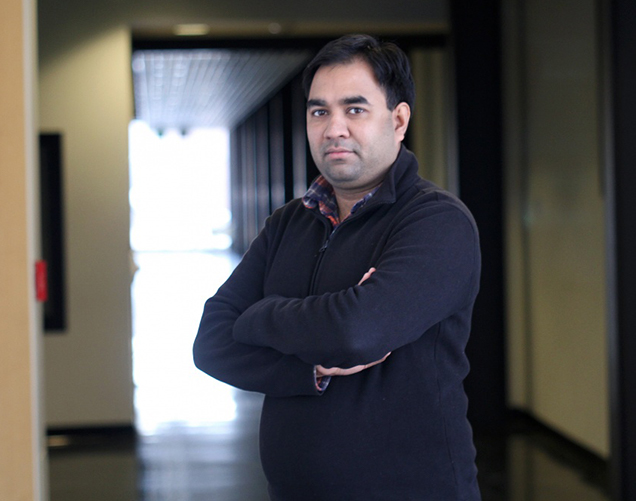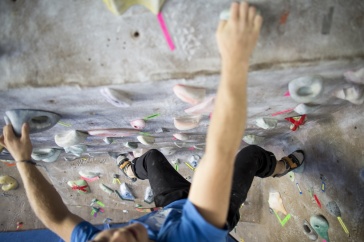
After a successful first round of computer simulations, researchers from the College of Engineering and Physical Sciences have been granted access to Anton 2, the world’s fastest supercomputer for biomolecular simulations. Data from the research could lead to designing novel therapies and treatments for diabetes.
Harish Vashisth, an assistant professor of chemical engineering, was originally granted access to the supercomputer located at the University of Pittsburgh through a competitive research proposal process spearheaded by the National Research Council.
Vashisth’s proposal aims to simulate the dynamics of one of the largest and most important proteins in the pathway of hormone insulin, the insulin receptor. These proteins are central players in major health risks such as diabetes.
The additional access to the computer, scheduled for 2018, was doubled to five days and will allow for multiple simulation runs of the insulin receptor. Each run is capable of producing data that would normally take two to three years for UNH supercomputing resources.
The first round of computations on Anton 2 was run remotely this summer by Vashisth and doctoral student Hossein Mohammadiarani. Mohammadiarani had previously attended a workshop at the Pittsburgh Supercomputing Center to learn how to access Anton 2 and run simulations.
“This first allocation has enabled us to conduct large-scale simulation studies of the insulin receptor protein, which is a major drug-target in diabetes,” says Vashisth, a 2016 CAREER Award winner from the National Science Foundation. “We have now constructed the first-ever model of the full receptor, which we will refine using our new allocation, both with and without hormone present.”
Vashisth is awaiting whether another doctoral student, Mohammadjavad Mohammadi, will be invited to the same workshop that Mohammadiarani attended. Vashisth says meeting the Anton 2 team at the workshop is a wonderful opportunity for graduate students.
“They get to meet researchers on other funded projects on Anton who are pursuing problems at various scales,” says Vashisth. “It provides an excellent perspective on the variety of scientific problems that can be addressed using this special-purpose supercomputer.”
Read more about cutting-edge research happening at CEPS.
-
Written By:
Brooks Payette | College of Engineering and Physical Sciences

















































